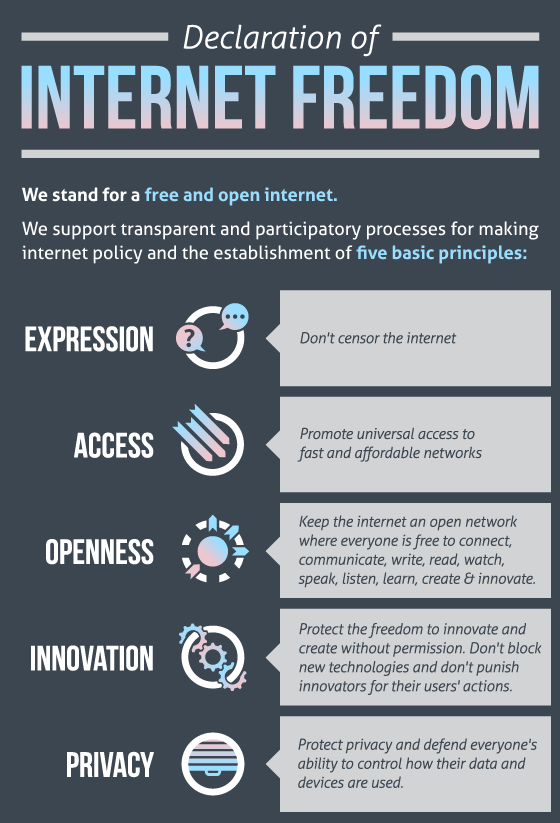After SOPA and PIPA (the two bills that were about to be voted from the American Congress recently), another agreement, known as ACTA (Anti-Counterfeiting Trade Agreement) is about to be signed, this time by countries all over the world.
This international “trade agreement” is negotiated by European Union, U.S, Japan, Canada, South Korea, Australia and other countries with main goal to restrict copyright violations and to create an international legal framework for targeting counterfeit goods and generic medicines. The truth is that if this agreement pass, internet service providers (ISPs) will be the new “internet copyright police”, knowing your every move ,any time, by checking all data going in and out of your personal computer and this is only the beginning…
Several organizations that defend human rights and freedom of speech, have started to mobilize, complaining that the whole discussion of ACTA, is been made without any public consultation and fearing that it will bring stifling conditions, both to freedom of expression online, access to medicines, but also in culture and knowledge. It is important to mention that ACTA has been negotiated in secret for the last 4 years by 39 countries and by people that are not democratically elected representatives.
Among the countries that have already signed this agreement are: U.S., Japan, South Korea, Australia, Morocco, Singapore, New Zealand, France, Poland, Finland, France, Ireland, Italy, Portugal, Greece and Romania, while European countries that didn’t signed it are: UK, Germany, Holland, Cyprus, Estonia and Slovakia.
Signing the agreement does not mean that it has been finalized though. The agreement must pass from a vote in the European Parliament this June. The activist group La Quadrature du Net has released a statement, urging everyone to put pressure on every country’s members of parliament and members of the European parliament to fight ACTA, before it is voted in the European Parliament.
What is ACTA:
[youtube id=”N8Xg_C2YmG0″ width=”100%” height=”400″]
[youtube id=”citzRjwk-sQ” width=”100%” height=”400″]
Although these laws supposed to be about stopping online piracy, the vast majority of people and internet companies (including Google, Mozilla,Wikipedia) are afraid that they will be used in a way that it will place free expression in jeopardy and eventually hurt internet in total.
What SOPA and PIPA will actually do.
PROTECT IP Act (PIPA) : It will force U.S. internet providers to block websites that violate copyright laws while taking legal action (in order to remove the links to those black listed sites) against search engines, directories and any other kind of website including advertising services. Companies will also have the power of suing any website (launched after the specific bill is passed) that is believed that it didn’t take the necessary measures of preventing infringement.
Stop Online Piracy Act (SOPA) : Companies will have the power to create their own black list of websites they feel are violating their copyright policies. Payment processors will also have the power to block those same sites if they can provide a reason of why they believe that those sites are violating copyrights. The U.S. Attorney General will be able to force search engines, DNS providers, servers and payment processors from having any contact with websites that seem to violate copyrights.
In a sentence, these two bills will give greater power to law enforcement to filter the internet, while making sure that there will be no possible way to get around them. This actually means that personal blogs, Facebook, Youtube and Twitter accounts along with many other websites and services, are in danger of getting blacklisted or blocked. The truth is that the entire web will be censored.
Of course, the above bills will not only influence U.S. but the entire world. Additionally, it is almost certain that piracy will not be able to dealt with, despite all these hard measures.
Wikipedia, WordPress, Reddit, Mozilla and Google are some of the major companies that took a clear stance against these bills and participated in the strike by “blacking out” their pages. Google, more specifically, blacked out its logo and created a page with the title:
..these bills would censor the Internet and slow economic growth in the U.S.
encouraging all people to sign a petition urging Congress to vote NO on PIPA and SOPA. (Google also stated that SOPA protests will not cause problems with Googlebot which will crawl at much lower rate for this specific day.)
Although Facebook was not closed down, Mark Zuckerberg stated:
The internet is the most powerful tool we have for creating a more open and connected world. We can’t let poorly thought out laws get in the way of the internet’s development. Facebook opposes SOPA and PIPA, and we will continue to oppose any laws that will hurt the internet.
…
Let us hope that with everyone’s help, these bills will be rejected and Ιnternet will eventually come out unscathed from this test.
More information about ACTA :
http://en.wikipedia.org/wiki/Anti-Counterfeiting_Trade_Agreement
http://www.stopacta.info/


